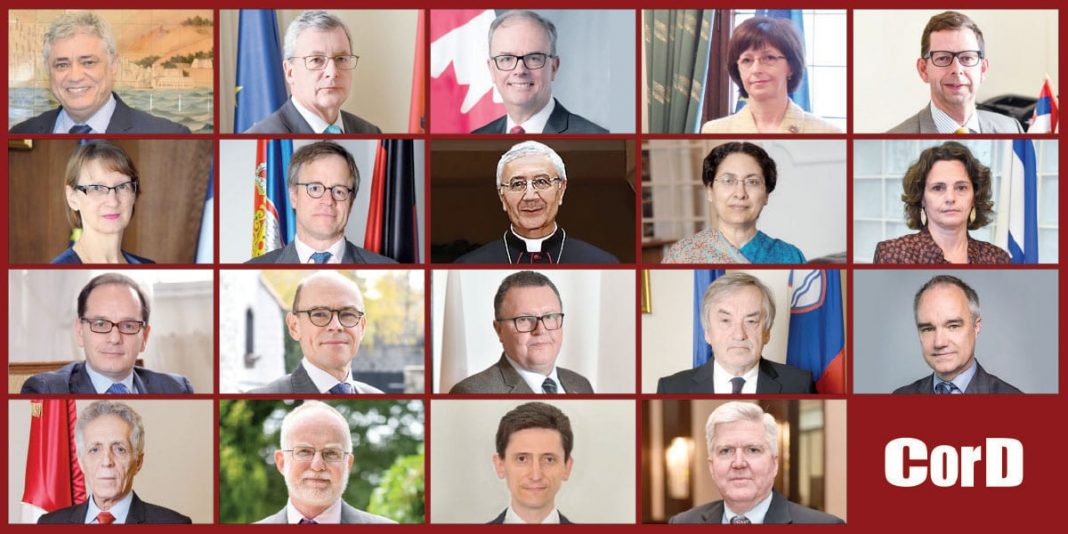In our now traditional survey, CorD ends each year by posing questions to ambassadors accredited in Serbia that relate to the year that is coming to an end and their expectations for the year ahead
During 2016 we witnessed some major turmoil, such as the UK’s decision to leave the European Union, the upsurge of terrorist attacks in different parts of the world, a continuation of the migrant crisis and the crises in Ukraine and the Middle East, prolonged economic stagnation almost all over the world.
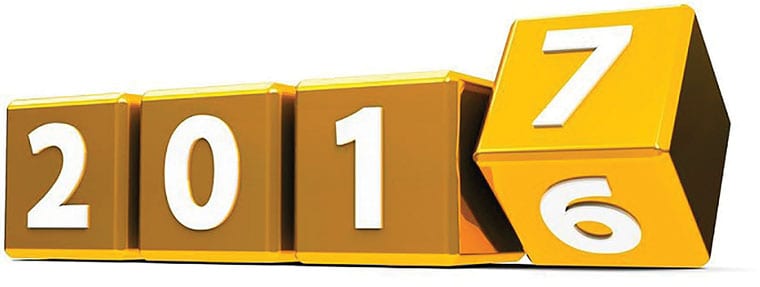
Adding to all of that, the election of Donald Trump as the new U.S. President has prompted debate around the world about whether we are set to witness a new agenda from this superpower. At the same time, we have witnessed scientific discoveries, major art events, sporting records and humanitarian activity.
For the first time ever, the Nobel Prize in literature went to a songwriter, singer, and artist: Bob Dylan.
Serbia had its great moments too: with four negotiating chapters opened to date, Serbia has taken a significant step towards EU accession; the Serbian economy has shown robust growth based on exports and foreign investments; unemployment has fallen and the country has so far successfully fulfilled the obligations it took on when it reached agreement with the IMF.
For this December’s issue of CorD, we asked our distinguished readers the following questions:
1. What will you remember about 2016, when it comes to your professional work?
2. What are your expectations for 2017?
Here are the answers.
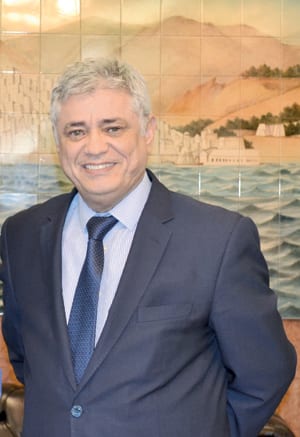
Ambassador Of Algeria To Serbia
ALGERIA
Libya, Syria And Yemen Should Find Peace
The historic visit of Serbian President Tomislav Nikolić to Algiers in May 2016 and his meeting with President Bouteflika was indubitably the event that marked my professional work in 2016.
It was the first visit of a President of the Republic of Serbia to Algeria since the visit of President Tito to Algiers in 1979.
This visit was an opportunity for our two countries to sign several agreements and thus further strengthen the legal framework for our cooperation and open new perspectives for our relationship.
At the bilateral level, in 2017 I expect the growth of trade between Algeria and Serbia and a strengthening of our political relations.
At the international level, I remain hopeful that Libya, Syria and Yemen will find peace and stability.
When it comes to our region, the Maghreb, I hope that Algeria’s efforts to find a political solution to the crisis in Libya will be successful in 2017, just as it succeeded in restoring peace in Mali in 2015, and that the issue of Western Sahara can find a just and lasting solution through the implementation of UN resolutions on this conflict, which has lasted for more than forty years.
Finally, Algeria, which has suffered from terrorism, has always called for international solidarity to deal with this cross-border scourge. We hope that 2017 will finally see the world get rid of this phenomenon.
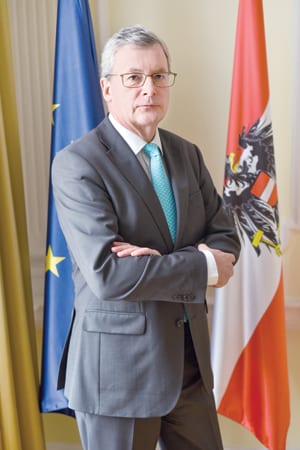
Ambassador Of Austria To Serbia
AUSTRIA
EU Will Regenerate New Strength
Of the many activities that we had during 2016, I would single out the visit of our minister of foreign affairs, Sebastian Kurz, at the beginning of the year. This visit not only confirmed the excellent relations between our countries but also helped to prepare action against the massive uncontrolled inflow of refugees and migrants along the so-called “Balkan route”.
I would, however, like to mention something else that is not strictly related to my professional work: I had the pleasure to present my German translation of Filip David’s best-seller “Kuća sećanja i zaborava” (The House of Memories and Oblivion), a book and Serbian author that are very dear to my heart.
I would also add that the European Union, despite all challenges, will prove its resilience and its attractiveness; and that the – unfinished – European project will not be doomed to failure, but rather regenerating new strength.
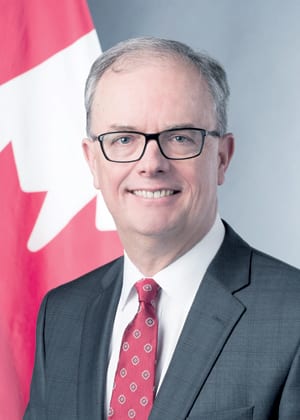
AMBASSADOR OF CANADA TO SERBIA
CANADA
Looking Forward to Celebrating Canada’s 150th Anniversary!
“The lesson from my travels in 2016 (from Belgrade to Novi Pazar, Pirot or Apatin, and in between) is that Canada-Serbia bilateral relations are solid. The visit of First Deputy Prime Minister and Minister of Foreign Affairs Ivica Dačić to Canada in November (the first visit by a foreign minister from this country since 2002), was a fitting cap to the year and allowed us to review and renew our bilateral relationship.
“Canada continues to support Serbia’s economic and social transition and the goal of making life better for Serbians. Good progress has been made, but there is a consensus that important work remains to deal with challenges: on judicial reform and on strengthening fundamental rights, especially for the most vulnerable in society, as examples.
“We continue to promote Serbia for Canadian exporters and investors and are seeing more interest in the exploration and mining sectors, as Canadians recognise the potential. Canadian investors in Serbia are satisfied, although they share the general concerns of investors from other countries.
“For 2017 we are looking forward to celebrating Canada’s 150th anniversary. A strong Canadian presence in Serbia will continue, largely thanks to businessmen, artists and performers in the Serbian diaspora who return and are active here. On the economic front, we are looking forward to more Canadian companies coming to the Serbian market, or expanding their presence here.”
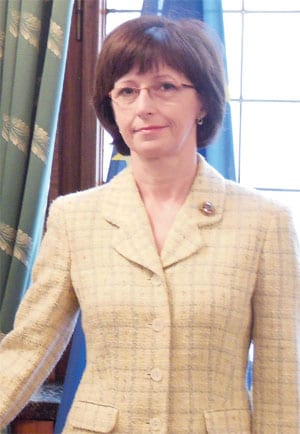
AMBASSADOR OF THE CZECH REPUBLIC TO SERBIA
CZECH REPUBLIC
Migration Crisis And Further Progress in EU Accession
“I will remember 2016 for the 25th anniversary of the establishment of the Visegrad Group. We celebrated it in February during the Czech presidency of V4. I’ll particularly remember the Visegrad Group + Serbia foreign ministers meeting simulation, which we organised on that occasion in our embassy, with students from the V4 countries and Serbia.
“In 2016 we also commemorated the 700th anniversary of Emperor Charles IV’s birth. Like many other institutions in the Czech Republic, we also celebrated it by organising an exhibition about this great emperor.
“Last year was also marked by the migrant crisis. I admire how Serbia, her government, institutions and people, are dealing with this crisis. A group of young people from the Czech Republic also came as volunteers to help the Balkan countries deal with a large number of migrants. It is the obligation of all of us to show solidarity, while the Czech Republic also assisted Serbia financially.
“The next year is an election year in both of our countries. In Serbia, there will be presidential elections and in the Czech Republic parliamentary elections.
“I hope that Serbia will make progress in accession negotiations and open more new chapters. I also hope for significant progress in the Belgrade- Pristina dialogue.
“I wish for Serbia to economic progress and experience no more problems in the region and in bilateral relations.
“Bilaterally, we will mark 70 years of the embassy building. It has borne witness to the history of Czechoslovak/Czech – Yugoslav/Serbian relations and, due to its location, it has also witnessed Serbian history in the 20th century.”
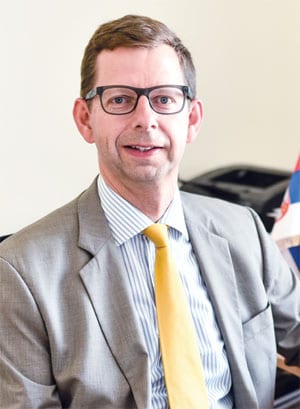
HEAD OF MISSION OF THE EMBASSY OF DENMARK IN BELGRADE
DENMARK
Improvement of The Business Climate And Danish Contributions to Creating New Jobs
“Looking back at 2016, I would like to focus on the main area where we have seen positive developments. The Serbian economy is developing in a positive direction and the business climate is improving. I am happy about this because it provides a basis to improve the situation for the people of Serbia. The improvements are also important for Serbia’s path towards the European Union.
“A stronger economy and the implementation of reforms prepare Serbia better for the EU. I congratulate Serbia on its improvement on the World Bank’s Doing Business index.
“A better business environment increases the possibilities for Serbia to benefit more from the EU process.
“Investments from Denmark and trade between our two countries are already rising and at the Embassy and we are very busy in assisting Danish companies interested in the Serbian market.
“This year we also concluded an important Danish development project in Southern Serbia – the Fruits and Berries programme.
“This project has created hundreds of jobs and increased income for many families. I am very pleased that Denmark has been able to provide a contribution to job creation in this way.
“My expectations are that Serbia will continue progressing and that more people will feel the benefits of EU-related reforms.
“We hope to see new momentum in the reform process, not least in the area of the rule of law.
“The environment and energy are other important reform areas, and here there are interesting opportunities for partnerships with private companies.”
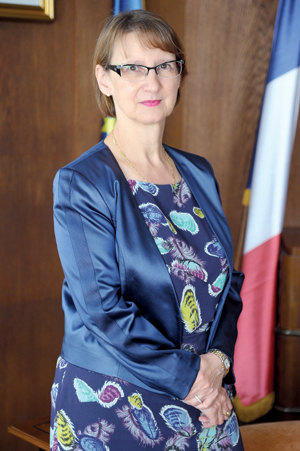
AMBASSADOR OF FRANCE TO SERBIA
FRANCE
Last Year’s Terrorist Attacks And Expected Evolutions of Peace, Stability And Solidarity
“For me, the Prime Minister’s visit to Paris in September certainly represents a milestone in our bilateral relations and France’s support to Serbia’s political priority: European integration. This priority goal of Serbia was confirmed by the results of the April 2016 elections, the opening of two more negotiation chapters, as well as positive assessments in the country report issued in November. However, Euroscepticism gained ground in the public debate during this year. This certainly mirrors the debates that are also taking place in the EU and, above all, the result of the “Brexit” referendum.
“One of our main challenges for 2017, both in the EU and in a candidate country like Serbia, is to make people better understand all the positive evolutions that the EU has made possible, like peace and stability, solidarity to bridge gaps in living standards, a big single market to expand economic activities, the possibility of travelling freely etc. This year saw my country further support progress in regional cooperation by hosting the Western Balkan “Berlin process” Summit in Paris on 4th July. In 2016 we had deplorable terrorist attacks committed in France, Belgium, Germany, the U.S., and Turkey, and also against Muslim populations in the Middle East and Africa; the struggle against terrorism and its prevention have become key challenges in international cooperation. Let us conclude with a more positive note: the Paris Agreement on climate change entered into force on 4th November, marking good news for the planet!”
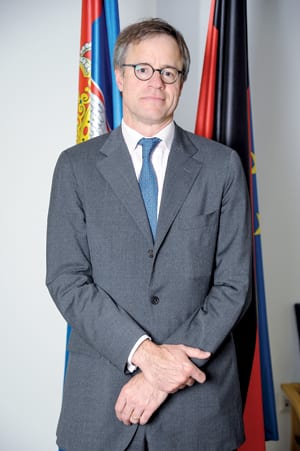
GERMAN AMBASSADOR TO SERBIA
GERMANY
Further Changes Will Enhance Living Standards in Serbia
On the global and European scenes, 2016 has been another very challenging year. However, my personal and professional assessment of what has been achieved in German-Serbian relations is a positive one: Germany and Serbia continued to cooperate closely and successfully in many areas in 2016 – in politics, economics and culture.
Germany supported Serbia’s next steps on its path towards EU membership. In 2016 Serbia and the EU managed to open crucial chapters in the EU accession process, namely those covering the rule of law. Together with the EU, Serbia has developed very detailed action plans in these areas. They are a real blueprint for reform and consist of legislative amendments that need to be made e.g. in order to ensure the independence, impartiality and efficiency of the Judiciary and to prosecute corruption cases more effectively. We hope that these changes will be implemented in 2017 and will thereby substantially enhance living standards in Serbia.
Germany also continued to support regional cooperation in 2016 through the Berlin Process, an annual conference cycle initiated by Chancellor Merkel and Foreign Minister Steinmeier in order to bring the countries of the Western Balkans region together to agree on concrete joint projects in cooperation with the EU. At the 2016 Paris Summit, the Balkan countries signed the founding document for the Regional Youth Cooperation Office (RYCO). This office, a joint initiative of Serbia and Albania, will officially start its work in January 2017 and has the goal of establishing close cooperation between young people from the Western Balkan region.
Another good regional development in 2016 was further progress in the normalisation dialogue between Serbia and Kosovo. It is good that both partners committed to continuing this process in 2017, to the benefit of people both in Serbia and Kosovo.
In 2016 Serbia and Germany again cooperated closely on global challenges like the refugee crisis. Serbia reacted very responsibly to this crisis and Germany offered substantial support exceeding €4 million to the Serbian state and NGOs to deal with this challenge.
Both countries cooperated closely in the field of the economy. German companies are very interested in the Serbian market: over 350 German businesses have invested more than €1.8 billion in Serbia over the past 16 years, creating over 32,000 jobs in the process. The overall good cooperation between businesses was crowned in April with the establishing of the German-Serbian Chamber of Commerce.
This year we also enjoyed broad cultural exchanges between our two countries: the Bitef Festival, in which two German companies participated; the guest performance of the “Dresden Frankfurt Dance Company” in the Belgrade Dance Festival; German and Serbian DJs are collaborating closely and several visual artists have also linked up successfully. As of next season, a German conductor will be leading the Belgrade Philharmonic Orchestra – their first concert at the end of November was great and I am looking forward to listening to many more in 2017!
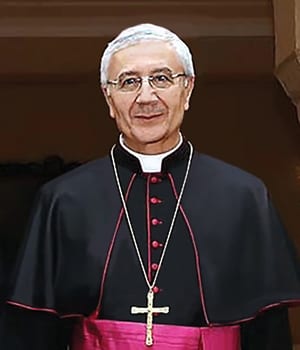
APOSTOLIC NUNCIO IN SERBIA, HOLY SEE (VATICAN)
HOLY SEE (VATICAN)
Dialogue And Acceptance
“I would like to briefly retrace some highlights of the activity and teachings of Pope Francis in this year that is approaching its end.
“This 2016 was again marked, for Europe, with a massive flow of refugees, driven out by war and the search for a better life. The Serbian people knew how to provide an example of generosity and their capacity for acceptance. During April the Pope travelled to Lesbos, Greece, to express his affinity with the victims of migration and to raise European awareness regarding the issue of acceptance. “Europe, aided by its great cultural and religious heritage, has the means to defend the centrality of the human person and to find the right balance between its twofold moral responsibility to protect the rights of its citizens and to ensure assistance and acceptance to migrants” (Address to the Diplomatic Corps, January 2016).
“The mass arrivals of people from other countries, who bring with them their culture and customs, also compels us to ensure greater dialogue between different religions. Receiving the victims of the horrible attack in Nice at the Vatican in September, Pope Francis said: “Establishing a sincere dialogue and fraternal relations among all… is an urgent priority that those in leadership positions, both political and religious, should seek to encourage, and which everyone is called upon to realise in his own space.” Christians are the first called to overcome divisions and to be a sign of unity and concord in the world. In this sense, the historic meeting in Cuba last February between the Pope and Russian Patriarch Kirill was particularly significant.
“We hope that 2017 will see significant progress achieved in the search for peace in the world, which is an issue so dear to the Holy See and all men of goodwill. Too many wars continue to bathe the earth in blood. The hope is that all leaders of nations will put the supreme good of peace at the centre of their political commitment. The Holy See, with its acknowledged efforts of mediation, will never stop working for peace to be able to reign to the furthest ends of the earth and for the indifference of many hearts to be conquered by the warmth of mercy, which transforms fear into love and makes us peacemakers.”
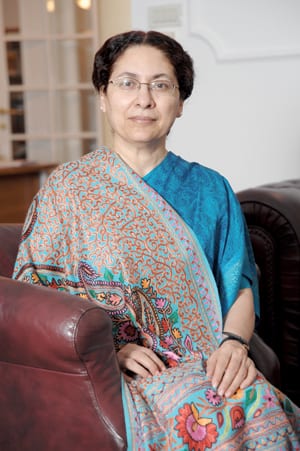
AMBASSADOR OF INDIA TO SERBIA
INDIA
Expecting a Robust Exchange of Visits Between Leaders
In 2016 India and Serbia continued to provide mutual support on issues of core interest. Serbia extended crucial support to India’s international role and Indian candidatures for various international organisations. Dr Jitendra Singh, Indian Minister of State in the Prime Minister’s Office, visited Serbia to meet the country’s top leadership. An MOU on IT & Electronics was signed. Serbia can benefit from Indian expertise in using IT as a tool to improve public service delivery, such as e-learning, e-government services, telemedicine, e-education, e-authentication, cybersecurity, internet-governance, e-commerce etc. The two countries will cooperate in R&D, innovation, IT hubs, start-up companies and infrastructure incubators. The first India-Serbia Business Forum was launched in Belgrade and will feed into the Joint Economic Committee. More than 400 Serbian businesses visited India for contracts (defence), fairs (trade) and festivals (films). The Electronic Tourist Visa (eTV) facility was introduced and has already been utilised by over 200 Serbian nationals. A Hindi Chair was established at the University of Novi Sad, while Indian companies continued to be represented at the Novi Sad Agriculture Fair and the Belgrade tourism and book fairs.
I look forward to a robust exchange of visits between leaders and parliamentarians. We expect to renew our agreements on culture, arts, media, youth affairs & sports, and to implement agreements on trade, agriculture, tourism & IT.
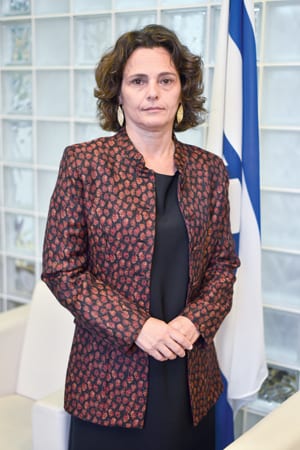
AMBASSADOR OF ISRAEL TO SERBIA
ISRAEL
Tightening Economic Relations and Boosting Israel’s Cultural Presence
“This year was a year of new beginnings for me. Arriving in Belgrade as Ambassador of Israel to Serbia and Montenegro was one of the most significant events. I found myself diving into the ocean of the fascinating history of the Balkans, attracted by its beauty, culture, politics and societies. After three months here, I feel I am only at the beginning of a long learning process that will continue in 2017.
“I have high hopes for the next year. I feel that the time is ripe for new initiatives that will benefit the two peoples. A lot has been achieved in the last years, thanks to the endeavours and dedication of my predecessors. My plan is to dedicate efforts to tightening economic relations and boosting the Israeli cultural presence here.”
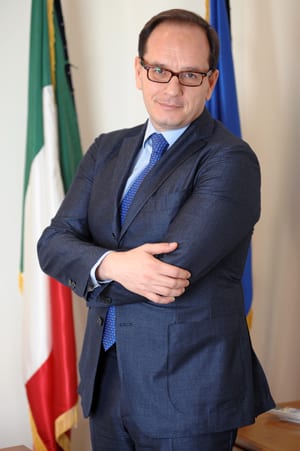
AMBASSADOR OF ITALY
ITALY
Focusing on New Year’s Resolutions Rather Than Expectations
I would use “symbolic” as the signature word to describe my 2016 in Belgrade. Of course, this year we also had what I would call the usual, intense flow of political, business and cultural exchanges. But, I would say even more importantly, 2016 saw some special moments. These were events and initiatives where the strategic partnership between Italy and Serbia took a symbolic and, thus, even more visible, form to confirm its growing relevance in a complex regional context.
The two-day meeting in Belgrade of all the Italian Ambassadors in the Balkans to discuss and shape our future strategies for the region was one of those moments. So was the first-ever regional conference of Balkan countries’ Special Prosecutors for Organised Crime and Terrorism, which Italy and Serbia jointly organised in Belgrade last May.
On a personal note, I was particularly happy to be in Belgrade to witness and contribute to the year-long celebrations of the 90th birthday of our Embassy. Almost a century has passed, but it remains one of the places representing Belgrade’s public life, having welcomed more than 3,000 guests in 2016 alone. We even published a book about this which, again, represents a symbolic and iconic witness to our friendship.
I believe that 2017 will be a challenging year for our countries and for the world. So I would focus on New Year’s resolutions rather than expectations. Italy is ready and resolute to continue playing its key role in Serbia and the Balkans, in the name of those interests that our citizens share on security, growth and advancing the values of freedom. and democracy on which the European community is founded.
We will do that by making the common priorities that I mentioned the core business of the 2017 Western Balkans Summit that Italy will chair and host in 2017, a year when we reconfirm our role as a regional and global actor, as we join the United Nations Security Council from 1st January, chair the G-7 (with the Taormina Summit in May) and host in Rome the special session of the European Council on the occasion of the 60th anniversary of the Treaty of Rome laying the foundations of today’s European Union.
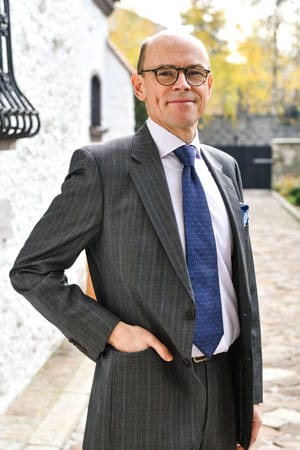
AMBASSADOR OF NORWAY TO SERBIA
NORWAY
Keeping The Accession Process on Track
“This has been my first full year in Serbia. The opening of the Obrenovac Sports and Culture Centre and the first-ever Month of Norwegian Culture in Belgrade, NOktobar, will both remain as professional highlights. Nothing, however, can compare with the honour of being declared an honorary citizen of Belgrade, as a sign of gratitude from Belgrade and Serbia for Norway’s friendship and assistance.
“I expect Serbia to continue on its way towards ever closer cooperation and integration with the European Union. It will be an important year in this respect, with presidential elections and the need to make difficult decisions in order to keep the accession process on track. Serious reforms are always difficult and often become increasingly difficult when you approach your target. Serbia is already feeling the difficulties of transition from a post-socialist society to a modern liberal and democratic society aligned with the countries of Western Europe, but changes must continue in order to achieve the objective of EU membership and I believe they will.”
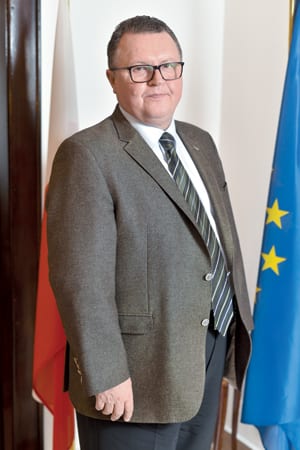
AMBASSADOR OF POLAND TO SERBIA
POLAND
Developing Strong And Vibrant Economic Cooperation
“Having arrived in Belgrade in August, I worked with the entire Embassy staff – a group of dedicated, young people – and my predecessor to ensure that we had a smooth transition at the top of our Mission. Soon after taking over as Ambassador to Serbia, I had the privilege and honour of organising an official visit of Poland’s Minister of Foreign Affairs, Witold Waszczykowski. It is my conviction – shared by others, both here in Belgrade and at home in Warsaw – that this visit was a success. The talks that our delegation had with Prime Minister Aleksandar Vučić and Foreign Minister Ivica Dačić testify to the continued strength of the bond between Poland and Serbia. The success of this visit makes us even more enthusiastic and more committed to further efforts in the coming year and beyond.
“In addition to the political pillar of our relations, we are also developing strong and vibrant economic cooperation with Serbia. The trade exchange between our countries has been growing constantly since 2010. Moreover, Poland can serve as an excellent example of how essential reforms can lay firm foundations for a healthy, robust and efficient economy that could be less vulnerable to crises. Sharing our experiences from the transformation period will be one of my priorities in the next year.
“I deeply believe that public and cultural diplomacy – which has always been my focus as a diplomat – are brilliant tools for enhancing partnership, friendship and understanding among nations. We organised numerous cultural events in the last year, including the Chopin Festival and Polish Film Festival in Belgrade and Niš. We are particularly proud of having brought together the Polish City of Wrocław and the Serbian City of Novi Sad – the first being the European Capital of Culture in 2016 and the second preparing to take on this title in 2021.
“I am looking forward to an exciting year ahead in Serbia. More work is to be done so that we can intensify our friendly bilateral relations and increase Poland’s presence in Serbia. In doing so, we will be building on the special relationship that has always existed between our nations.”
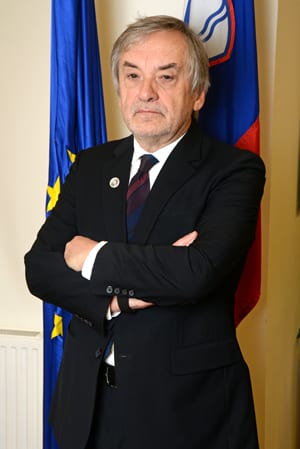
AMBASSADOR OF SLOVENIA TO SERBIA
SLOVENIA
Further Deepening of Economic Cooperation And Economic Diplomacy
“Given that my term as Ambassador of the Republic of Slovenia to Serbia began recently, in January 2016, what will remain in my memory as the most important event of this year is the implementation of the joint session of the governments of Slovenia and Serbia, which was held on 24th October in Belgrade. This large, important and successful event was attended by both prime ministers, as well as numerous ministers and other senior representatives from both countries.
I am particularly pleased about the concluding of tangible agreements, as well as the participation of numerous business representatives.
My expectations for 2017 in a professional context are related to further improvement of the bilateral relations between the two countries, in which the priorities of my work in Serbia are included – they are progressing in resolving outstanding issues arising from problems associated with the inherited legacy of the former shared state, as well as the further deepening of economic cooperation and economic diplomacy.”
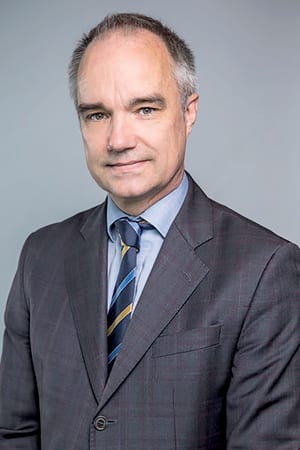
AMBASSADOR OF KINGDOM OF SWEDEN TO SERBIA
SWEDEN
Visit of The Swedish Prime Minister: A Milestone in Bilateral Relations
“I will remember 2016 for the visit of Swedish Prime Minister Stefan Löfven to Serbia in August. This visit was an important milestone in the bilateral relations between Sweden and Serbia, and a sign of the importance that Sweden attaches to Serbia’s EU integration.
“In 2017 I look forward to bilateral cooperation in the field of sustainable development in implementing EU legislation, in fields such as water treatment and waste management, as well as working together on the global UN Agenda 2030, which will make the whole world a better place for future generations.
“I also look forward to celebrating a century of diplomatic relations between Serbia and Sweden, together with official representatives, experts and the NGO community.”
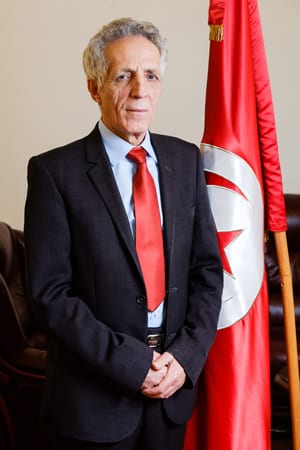
AMBASSADOR OF TUNISIA TO SERBIA
TUNISIA
Lots of Opportunities to Enhance Economic Partnerships
Our opportunities to enhance economic partnerships and bilateral relations in 2017 are excellent and we believe that the traditional friendly and cooperative relationship between Tunisia and Serbia will be strengthened and further developed. We are very appreciative of the Order of the Republic of Serbia that was awarded by President Tomislav Nikolić to President Beji Caid Essebsi on the occasion of Serbian National Day last year. I would like to highlight Tunisia’s stance regarding respect for the territorial integrity and sovereignty of Serbia.
I am also seizing this opportunity to congratulate Serbia for the good performance of its teams at the 2016 Summer Olympics in Rio de Janeiro. Serbia is a great sporting nation and we wish it good luck in the qualification process for the 2018 FIFA World Cup in Russia.
During 2017 we will continue to deepen our bilateral ties with the Serbian side and endeavour to further promote mutually beneficial cooperation. We will have a number of opportunities to enhance economic partnerships together in 2017. Of course, we are confident that greater numbers of our Serbian friends will be visiting Tunisia, which is a safe and warm country that is so close.
On a global level, and considering that no country is immune from the scourge of terrorism today, a shared commitment is required from all nations and increased cooperation between states is needed to fight and defeat terrorism, which represents a genuine threat to peace and security worldwide, and to make the world safer and more peaceful. May the New Year bring peace, stability and solidarity. We need to endeavour together to further promote values of tolerance, mutual understanding and the culture of peace, which are fundamental assets for peaceful coexistence.
Finally, and as we welcome 2017, let me extend to our Serbian friends my best wishes for a happy New Year and for further progress and prosperity, and also to convey my best wishes to the team at CorD Magazine for a happy and successful New Year.
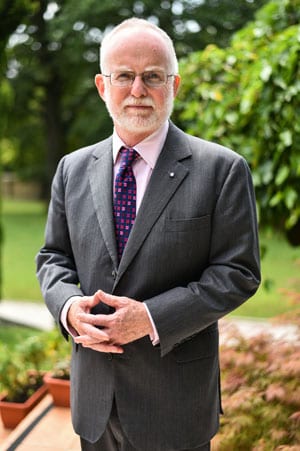
UK AMBASSADOR TO SERBIA
UNITED KINGDOM
Working Together on Stability And Prosperity For Our Shared Future
I will remember 2016 as the year that began with a wonderful visit by Prince Charles and the Duchess of Cornwall. The warm reaction everywhere they went reflected their engagement with Serbia’s history and culture, as well as the many ways in which Britain and Serbia are working together on the basis of shared values. We saw this again at the end of the year with the visit of Foreign Secretary Boris Johnson. This has been a great year to be British Ambassador in Serbia.
Next year looks full of promise. It will be the 180th anniversary of diplomatic relations. I am looking forward to exploring more of our joint history, particularly through remembrance of the First World War, and to working together with Serbian people – in government, parliament, civil society, the media and elsewhere – to advance stability and prosperity for our shared future.
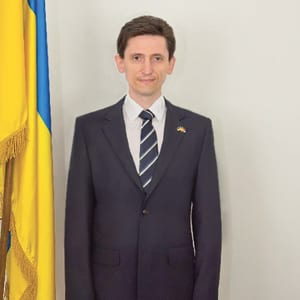
AMBASSADOR OF UKRAINE TO SERBIA
UKRAINE
Both Countries Should Continue Towards EU Integration
“Within a year of arriving in this country, I have learned the Serbian language well enough to conduct negotiations and give interviews. Serbian is a beautiful language and quite similar to Ukrainian (68% of common vocabulary), which reflects our shared history and origins from old times.
“After a long gap, a Ukrainian-Serbian business forum was held in Kyiv on October 2016, attended by 110 companies. The interest was enormous, with the fields of cooperation covering many sectors of the economy. We look forward to the next such forum in 2017.
“In August 2016 the Embassy organised the Ukrainian cultural festival in Belgrade. With limited resources, we managed to showcase Ukraine in photographs, fine arts, music and cuisine. There was a lot of interest from people in the street and from the media. The purpose of the festival was to demonstrate that Ukraine and Serbia have preserved and developed their own distinctive culture despite hundreds of years of occupation by regional empires.
“I expect both Ukraine and Serbia to continue on their path of European integration. This is not about geography; this is about the values of human dignity, the rule of law, freedom of the media, a strong economy and cultural diversity. Paradoxically, Ukrainians are probably the best champions of the European idea in today’s Europe, because we have sacrificed many lives for this idea. It is high time for all Europeans, including those in Serbia, to wake up and fight for those values. This is our best guarantee of peace and prosperity.
“Hopefully, in 2017 Ukraine and Serbia will finalise their bilateral free trade agreement, which will facilitate business cooperation. Moreover, the resumption of a direct Belgrade-Kyiv air connection, as well as the EU visa-free regime for Ukrainian citizens, will contribute to increasing people-to-people contacts and tourism between Eastern Europe and the Balkans.”
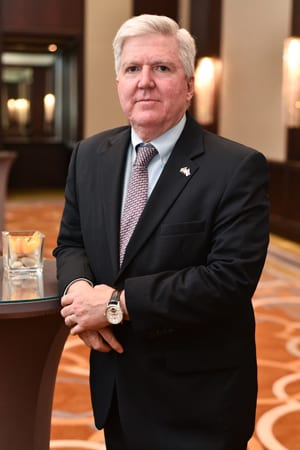
U.S. AMBASSADOR TO SERBIA
U.S.
Our Relations Grow And Deepen Every Day
“2016 has been a whirlwind. I arrived in Serbia in February. I’ll never forget the warm welcome I received – from my first meetings with government officials to the man on the street. I found in Serbia friendship and sincerity from my Serbian hosts, as well as a land of vibrant cultural life and incredible natural beauty.
“I will long remember the smiles, but also the tears: people who attribute their success to American programmes on community revitalisation, local government and entrepreneurship; the plight of migrants, but also their boundless optimism; the commitment of the Serbian government and civil society organisations to reach out to those in need.
“Relations with my country grow and deepen every day. We are working to strengthen Serbia’s border and customs controls, develop Serbia’s peacekeeping capabilities and modernise its military, as well as renovating Serbia’s courts to strengthen the rule of law and the fight against corruption. The new law on Holocaust Heirless Property is a model for this region. Most of all, I take pride in the steps that create a brighter future for Serbia’s youth – student exchanges, the Summer Work and Travel programme, or billions of dollars in American investments creating over 16,000 quality jobs.
“This year will also be memorable for the Serbian elections, the opening of new chapters in the EU accession process, steps towards normalising relations with Kosovo, and progress in building the foundation for future growth. Serbia’s enormous leap forward of 112 places in the World Bank’s “Ease of Doing Business” report, regarding construction permitting, is a welcome result of cooperation with the U.S. Embassy.
“Turning to 2017, I am optimistic. Serbia is poised for further growth and progress. It has become an anchor of stability in the region and, with wise leadership, can encourage reconciliation and build a more stable and prosperous Balkan Peninsula. I am confident that America will remain Serbia’s steadfast partner in this.”
